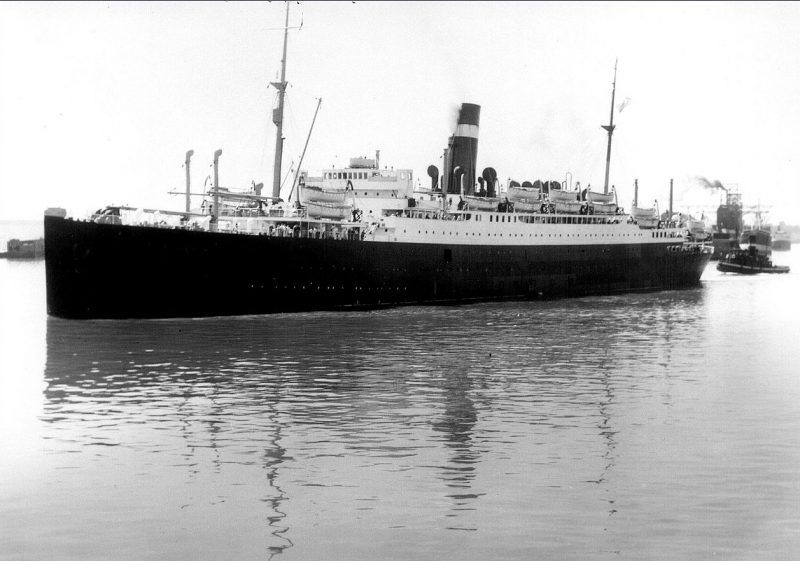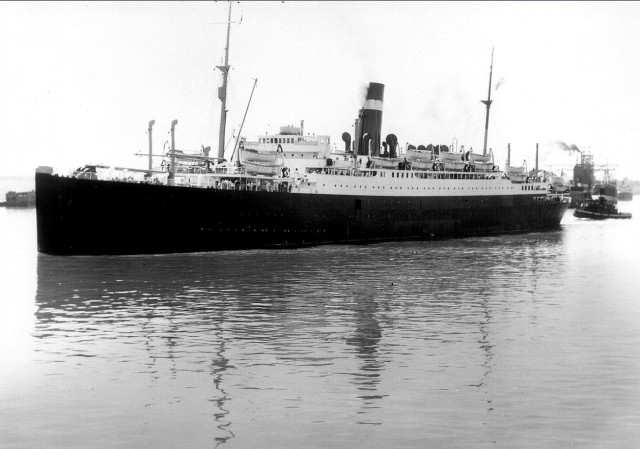A little more than eight hours after England and Germany declared war on Sept. 3, 1939, a German submarine attacked and sank the British passenger ship Athenia. In the days and weeks that followed the sinking, British politicians, diplomats and newspaper editorials made much of the fact that the German attack came “without warning.” (Without Warning is the title of my forthcoming historical novel that tells the story of this little-known event.)
The phrase seems oddly quaint today, especially considering the terrible carnage suffered by civilian populations during World War 2 and many wars since, much of it delivered with little or no warning from the attackers. In 1939, however, the requirement for warships to follow certain international “prize rules” was widely understood to be a standard of civilized warfare.
For much of World War 1 Germany ignored the prize rules and waged unrestricted warfare against all enemy ships, including unarmed merchant vessels. Germany’s submarines, known as U-boats, were particularly effective instruments of unrestricted warfare because, unlike other ships, they could attack from underwater without revealing their presence.
Following World War 1 there was a move among some victorious nations to abolish submarines in all future wars. The ban was never agreed upon, but in 1930 the London Naval Treaty was approved with language that was most onerous for submarines. The treaty allowed warships to attack without restriction enemy warships or ships sailing in convoys protected by warships. But for a merchant vessel sailing alone, warships were required to give warning that unless the vessel stopped and agreed to be boarded for an inspection, it was subject to attack.
If an inspection revealed the merchantman carried any war materiel, it could be sunk, but not before her crew was put “in a place of safety.” Lifeboats were not regarded as a place of safety unless the existing sea and weather conditions were not threatening, land was nearby, or a rescue vessel was in a position to pick up the ship’s crew.
These rules were incorporated into the London Submarine Protocol of 1936 and agreed to by 35 nations, including Germany. As the clouds of war gathered in 1939, the British expected that the signatories to the submarine protocol would honor the agreement.
The rules were most problematic for submarines. Radio communication, the advent of aircraft carriers, and the increased speed and range of aircraft added a great deal of risk for U-boats, which were quite vulnerable to aircraft attacks when surfaced. The time a U-boat spent on the surface to stop and search a merchant ship was long enough to result in attacks from the air in the opening weeks of the war.
When the Royal Navy began commandeering and arming merchant ships in 1939 to help protect Great Britain’s shipping lanes, U-boat captains faced another danger. Submarines were lightly armored, so if they mistakenly surfaced to stop one of these armed merchant cruisers, a well-placed shot from the “merchant ship” could prove fatal. Of course the presence of guns on a merchant ship made it a warship and, therefore, a target that could legitimately be sunk without warning.
In fact, the captain of the U-boat that sank Athenia claimed he thought he was attacking an armed merchant cruiser. Clearly, if he had followed the rules, surfaced and issued a warning, the passenger ship never would have been attacked.
From today’s perspective it may seem surprising that most U-boat captains followed the protocol during the first several weeks of the war. Within a month, however, the British Admiralty established the convoy system, which offered greater overall protection for merchant ships but eliminated any requirement for a warning before they were attacked. Not long after that, the protocol became moot as Germany again resorted to unrestricted warfare on the high seas.
About Tom Sanger:
Tom has been writing for most of his adult life.
After earning a journalism degree, he worked in Los Angeles as a news writer at KABC and as a reporter at the Associated Press.
During a tour of duty in Vietnam, he served as an information specialist, writing hometown news releases and stories for Stars & Stripes, the military newspaper. In Sydney, Australia, he researched and wrote documentary scripts for two years at the Australian Broadcasting Corporation, before starting a 22-year career in corporate public relations in southern California.
His upcoming historical novel, “Without Warning,” is about a British passenger liner, the S.S. Athenia, that was attacked by a German submarine only a few hours after England declared war on Germany at the start of World War II in 1939. It is based on his grandmother’s memoir.
Visit his website: www.thomascsanger.com

